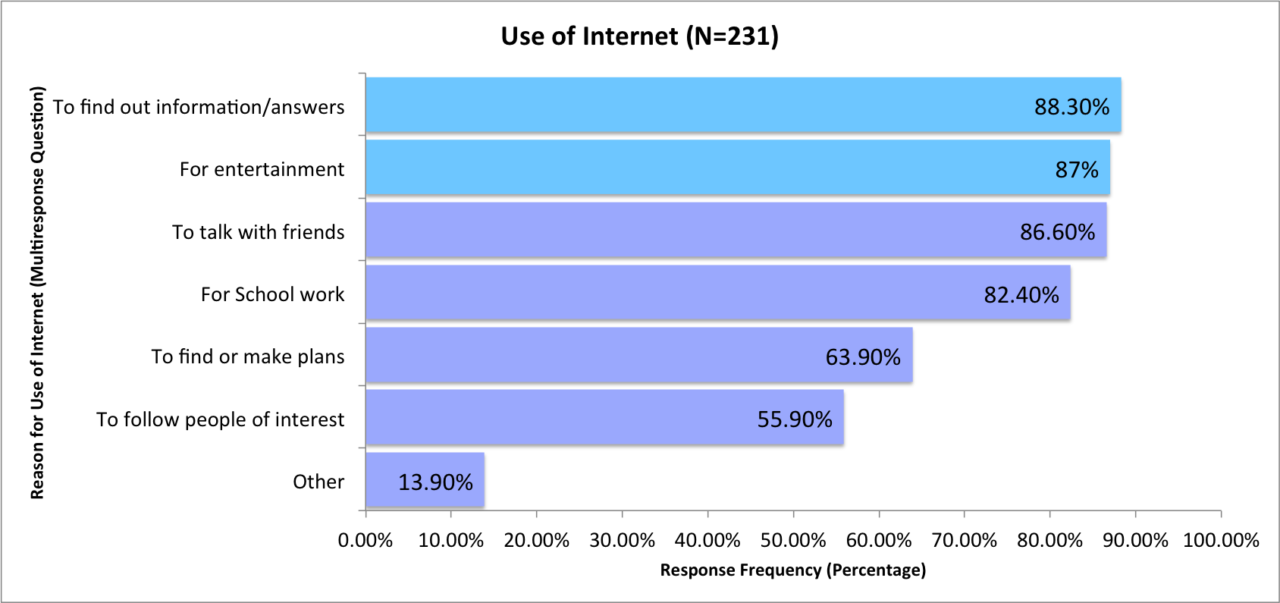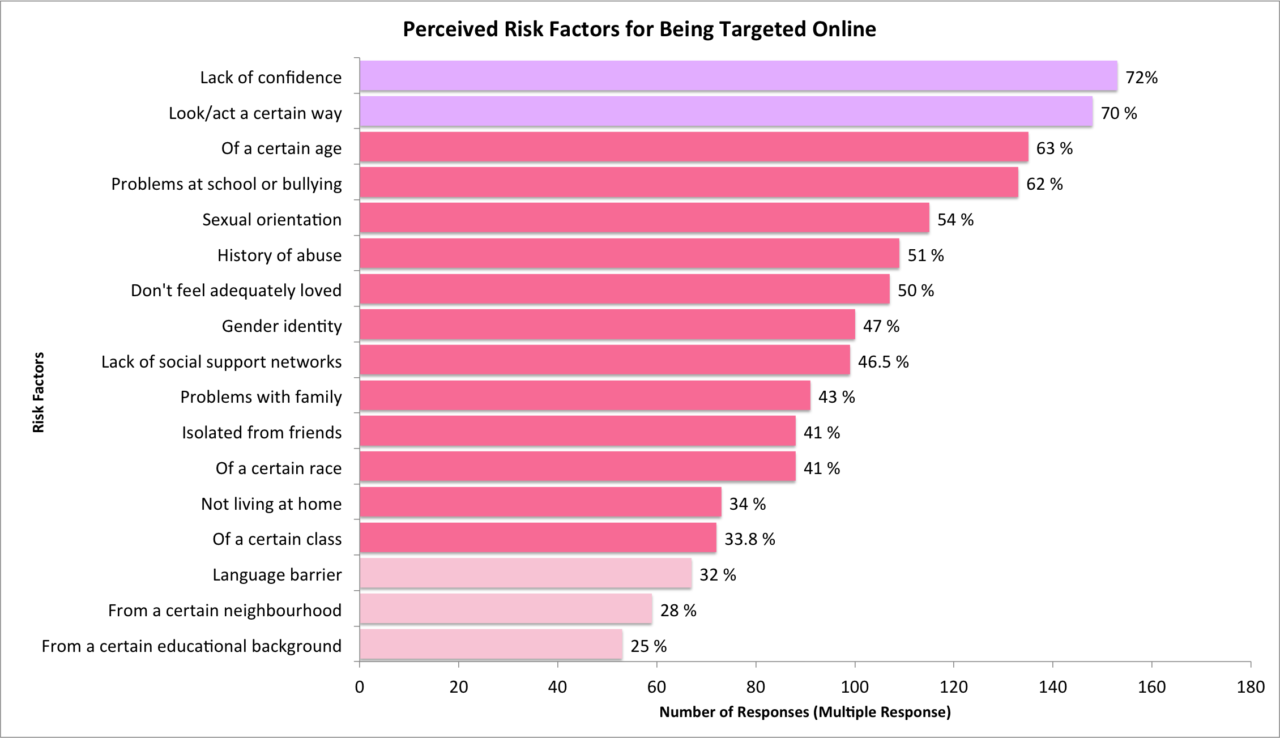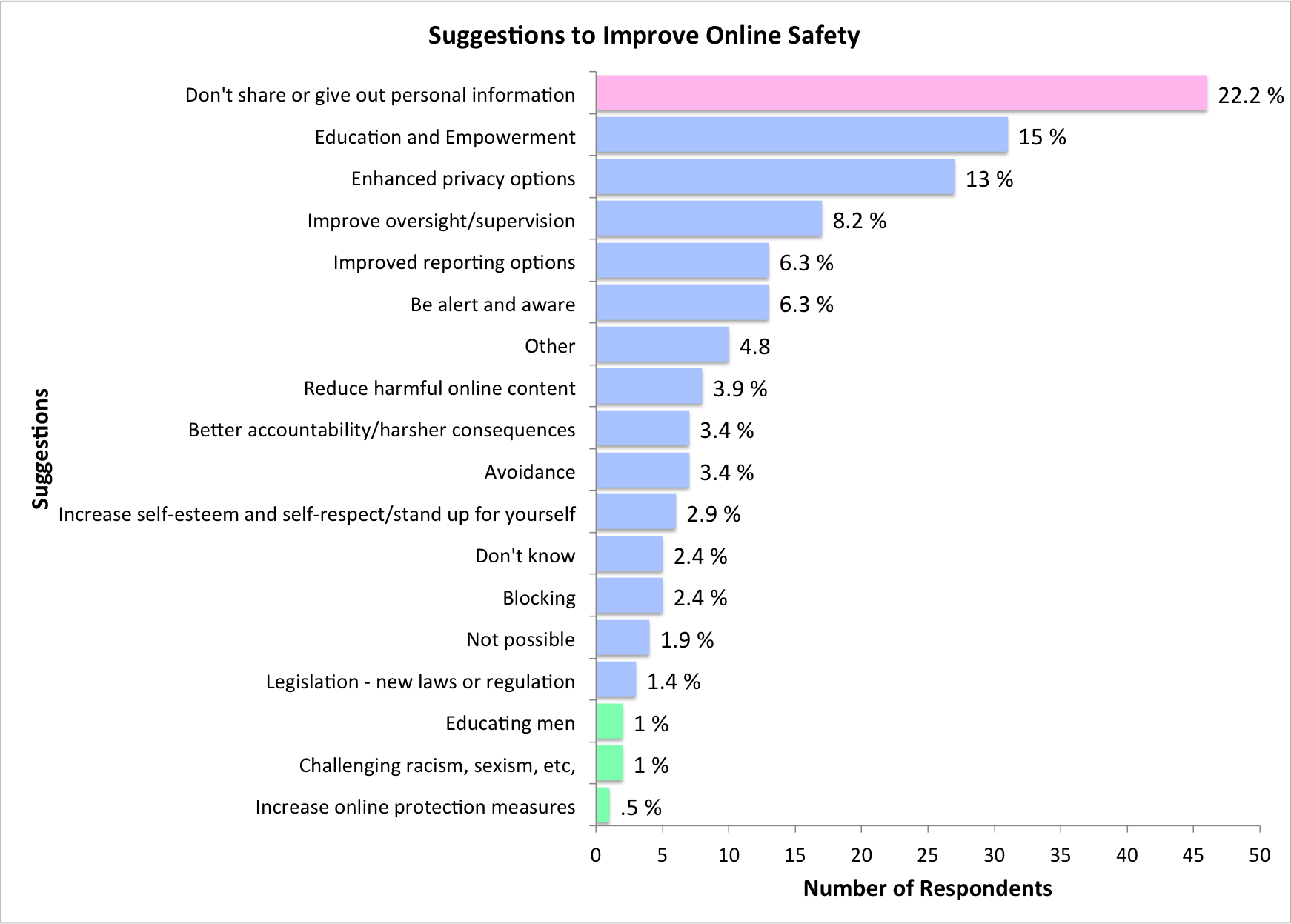Did you know…
Cyber 101Back in 2014, the Webbing With Wisdom team set out to talk to girls and young women across Toronto to see what their experiences were like online. We talked to almost 300 girls and young women, and here are some things they told us:
Why do girls and young women go online?
Mostly to find out information, for entertainment, and to talk with their friends.

Do girls and young women feel safe online?
If you look brown they think you’re Indian and think you should act a certain way – Girl, Research Participant
So… 81% of girls and young women said yes – BUT… later reported things that didn’t really fit with their initial response. When asked what kind of experience they think are very common online:
- 46% said someone using photo in an inappropriate way
- 51% said spreading of sexual rumours
- 44% said harassment
- 41% said sexual bullying (bullying and harassment that occurs in connection with a person’s sex, body, sexual orientation or with sexual activity)
- 55% said unwanted sexual approaches/advances
- 46% said spreading of sexual images of girls
What factors puts some girls and young women at risk online more than others?

Of 288 surveys:
- 72% of girls and young women checked off lack of confidence or looking and acting a certain way
- 70% of girls and young women checked off problems at school and bullying may be factors
- 50% of girls and young women checked off sexual orientation and 47% checked off gender identity
What are some of the best ways to keep safe online?

The best way to stay safe online according to girls and young women is to not share or give our personal information (22% said so) and education and empowerment (15% said so).
How does what happens online affect girls and young women offline?
Participants said:
[The girls or young women] don’t want to go out, if you haven’t cleared up what’s happened online, [they might be] afraid to run into people they are having issues with.
[The girl or young woman] will want to change herself.
[Girls and young women] might feel suicidal.
You’re [sic] online networks are mostly people you know in person and will likely affect you real life.
[Girls and young women] might become passive about sharing their opinions.
Great, so… what does this research even mean?
Something really interesting about our findings, is that although the majority of girls and young women say they feel safe online – their other answers told us a different story.
Almost half of girls and young women believe that sexual rumours, spreading of nude images, unwanted sexual advances and sexual bullying are things they see as very common online.
But how does that make sense, you ask?
Well, if some of these things happen online so often, maybe we don’t see them as all bad. Maybe we convince ourselves that it is just the way things are, and have numbed ourselves to the discomfort they make us feel.
Or maybe we think that only certain girls who “act” a certain way or have low self esteem are “asking” for this kind of treatment. Maybe we tell ourselves that we don’t do the things that they do and therefore are safe.
The reality is that the things that happen to us offline can also be very real online too.
Being cat-called on the street might make us think of sexual violence more than an inappropriate sexual comment would – but the impact of both are just as harmful.
In fact, according to girls and young women across Toronto, the harms of online violence such as cyber sexual violence can lead to things like:
- Depression, Anxiety and Emotional Trauma
- Lowers Self- Esteem and Self-Confidence
- Self-Harm and Suicide
What happens online doesn’t stay online, and that’s why we at Webbing With Wisdom have made this website to support and help you navigate whatever happens.